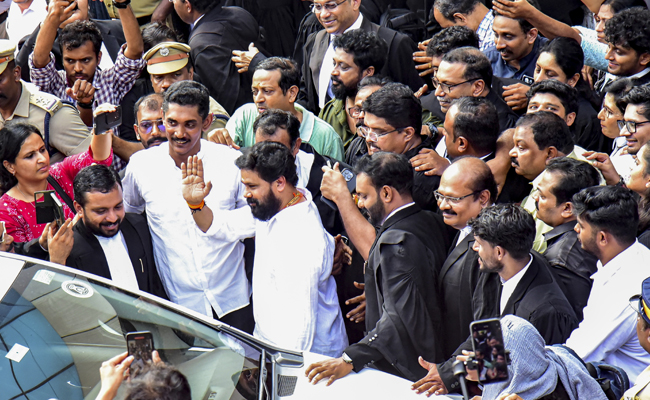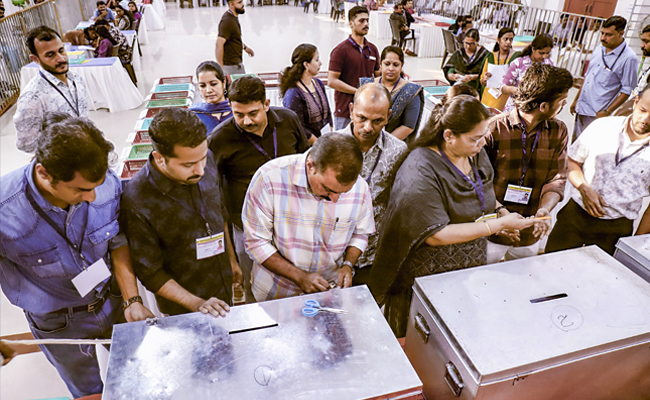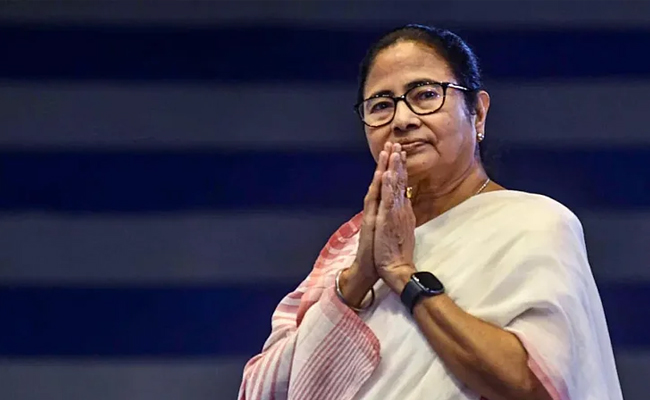New Delhi, Nov 9: In a bid to pitch India as an uplinking hub, the government on Tuesday announced relaxation in guidelines for compliance for television channels and also made a 30-minute daily public interest broadcast mandatory, mainly for entertainment channels.
The 'Guidelines for Uplinking and Downlinking of Television Channels in India, 2022', which have been approved by the Union Cabinet, allow limited liability partnerships and companies to allow uplinking of foreign channels from Indian teleports for beaming content in countries covered by the satellite footprint.
The move is expected to allow television channels of Bhutan, Bangladesh, Sri Lanka and Nepal to uplink from India, instead of Singapore, the preferred uplinking hub for channels beamed in the subcontinent.
Currently, only 30 channels are uplinked from India out of the total 897 registered with the Ministry of Information and Broadcasting, officials said.
"Requirement for seeking permission for live telecast of events has been done away with; only prior registration of events to be telecast live would be necessary," Sanjiv Shankar, Joint Secretary (Broadcasting) said in a presentation to the media here.
He said there would be no requirement of prior permission for change of language or conversion of mode of transmission from Standard Definition (SD) to High Definition (HD) or vice versa.
The channel will only have to inform the ministry about the changes, he said.
The guidelines were first issued in 2005 and revised in 2011. The current revision has taken place after 11 years after taking into account the technological advances in the interim period.
In case of emergency, for a company/ LLP with only two Directors/Partners, changes can be done subject to security clearance post such appointment, to enable business decision making.
The new guidelines state that a company can use news gathering equipment other than Digital Satellite News Gathering (DSNG), such as optic fibre, back pack, mobile, for which no separate permission would be necessary.
The guidelines state that electronic news gathering devices can be used.
Television channels will have to broadcast 30 minutes of public interest content every day on themes of national interest such as education and spread of literacy, agriculture and rural development, health and family welfare, science and technology, welfare of women, welfare of the weaker sections of the society, protection of environment and of cultural heritage and national integration.
"It is not that the government will give any programmes to the television channels for broadcasting under public interest content. The channels are free to create their own content on the themes mentioned in the guidelines," I&B Secretary Apurva Chandra said.
The guidelines also grant permission for a news agency for a five year period against one year at present.
The guidelines also make it mandatory for TV Channels uplinking in frequency band other than C-band to encrypt their signals.
Let the Truth be known. If you read VB and like VB, please be a VB Supporter and Help us deliver the Truth to one and all.
Kochi (PTI): The prosecution had "miserably" failed to prove the conspiracy charge against Dileep in the sensational 2017 actress sexual assault case, a local court has observed while citing inconsistencies and lack of sufficient evidence against the Malayalam star.
The full judgement of Ernakulam District and Principal Sessions Court Judge Honey M Varghese was released late on Friday, and has revealed the judge also pointing out at unsustainable arguments put forth by the prosecution.
"The prosecution miserably failed to prove the conspiracy between accused No.1 (Pulsar Suni) and accused No.8 (Dileep) in executing the offence against the victim," the court held.
It examined in detail, the prosecution's allegation that Dileep had hired the prime accused to sexually assault the survivor and record visuals, including close-up footage of a gold ring she was wearing, to establish her identity.
On page 1130 of the judgment, under paragraph 703, the court framed the issue as whether the prosecution's contention that NS Sunil (Pulsar Suni) recorded visuals of the gold ring worn by the victim at the time of the occurrence, so as to clearly disclose her identity, was sustainable.
The prosecution contended Dileep and Suni had planned the recording so that the actress' identity would be unmistakable, with the video of the gold ring intended to convince Dileep that the visuals were genuine.
However, the court noted that this contention was not stated in the first charge sheet and was introduced only in the second one.
As part of this claim, a gold ring was seized after the victim produced it before the police.
The court observed that multiple statements of the victim were recorded from February 18, 2017, following the incident, and that she first raised allegations against Dileep only on June 3, 2017.
Even on that day, nothing was mentioned about filming of the ring as claimed by the prosecution, the court said.
The prosecution failed to explain why the victim did not disclose this fact at the earliest available opportunities.
It further noted that although the victim had viewed the sexual assault visuals twice, she did not mention any specific recording of the gold ring on those occasions, which remained unexplained.
The court also examined the approvers' statements.
One approver told the magistrate that Dileep had instructed Pulsar Suni to record the victim's wedding ring.
The court observed that no such wedding ring was available with her at that time.
During the trial, the approver changed his version, the court said.
The Special Public Prosecutor put a leading question to the approver on whether Dileep had instructed the recording of the ring, after which he deposed that the instruction was to record it to prove the victim's identity.
The court observed that the approver changed his account to corroborate the victim's evidence.
When the same question was put to another approver, he repeated the claim during the trial but admitted he had never stated this fact before the investigating officer.
The court noted that the second approver even went to the extent of claiming Dileep had instructed the execution of the crime as the victim's engagement was over.
This showed that the evidence of the second approver regarding the shooting of the ring was untrue, as her engagement had taken place after the crime.
The court further observed that the visuals themselves clearly revealed the victim's identity and that there was no need to capture images of the ring to establish identity.
In paragraph 887, the court examined the alleged motive behind the crime and noted that in the first charge sheet, the prosecution had claimed that accused persons 1 to 6 had kidnapped the victim with the common intention of capturing nude visuals to extort money by threatening to circulate them and there was no mention about Dileep's role in it.
The court also rejected the prosecution's claim that the accused had been planning the assault on Dileep's instructions since 2013, noting that the allegation was not supported by reliable evidence.
It similarly ruled out the claim that Suni attempted to sexually assault the victim in Goa in January 2017, stating that witness statements showed no such misconduct when he served as the driver of the vehicle used by the actress there.
The court also discussed various controversies that followed Dileep's arrest and the evidence relied upon by the prosecution, ultimately finding that the case had not been proved.
Pronouning its verdict on the sensational case on December 8, the court acquitted Dileep and three others.
Later, the court sentenced six accused, including the prime accused Suni, to 20 years' rigorous imprisonment.
The assault on the multilingual actress, after the accused allegedly forced their way into her car and held it under their control for two hours on February 17, 2017, had shocked Kerala.
Pulsar Suni sexually assaulted the actress and video recorded the act with the help of the other convicted persons in the moving car.





